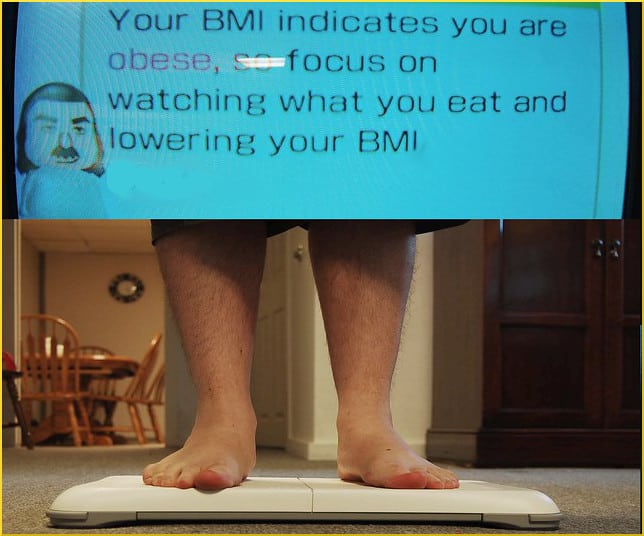
In the most recent post, Childhood Obesity News commented on the dilemma of a British boy, Kyon Fritz Marriott, who sadly personifies a very important question: Is enabling of obesity tantamount to child abuse? To continue, journalist Scarlet Howes described the boy as:
[…] in the grip of such helpless cravings he routinely binges in his family’s bathroom on crisps and chocolate he has stolen from the kitchen.
Would it be out of line to wonder — how do those crisps and chocolate treats find their way into the family kitchen? Below a certain age, and in most circumstances, kids pretty much have to eat what is given them. The family includes two normal-weight children, so it could be argued that they have rights.
But — when their pleasure conflicts with the needs of a desperately ill sibling — are they entitled to their junk food? Is there a need to keep chips and chocolate in the home, really? We are told,
Kyon began piling on weight when he was only seven as a result of teasing at school. A vicious cycle of bullying and comfort eating followed. His mum admitted she feels guilty for serving portions of his favourite dinners too large for his age. She also conceded it is “really hard” to tell exactly how much food he consumes every day because he eats so much in secret.
Kyon’s mum, Nadine, told Howes of her fear that the boy will be killed either by bullies or obesity. The line of questioning does not appear to have been pursued, but it is possible that some of the bullying is of the “mama’s boy” variety. Many children are, in a sense, over-nurtured in some areas. Probably most kids are unevenly nurtured, with counterproductive results.
When Kyon was 10, it was recommended that he have bariatric surgery at 12. His mother says he fixated on the idea that it would solve all his problems. In any society where health care costs are shared, there is always resentment of those who appear to abuse the system.
Just to complicate matters, and one hesitates to even mention this factor, but when the case was publicized, it was not only the cost to the public budget that disturbed people. Amongst the indifference to obesity as a condition worthy of concern, opposition included an ugly racist element.
A non-choice
Leading up to bariatric surgery, a patient is urged to slim down as much as possible on his own, because with each lost pound, the surgery becomes safer. Also, post-surgery, a boatload of restrictions will be in effect for the rest of the individual’s life. So it doesn’t hurt to put in some rehearsal time. But rather than wait and practice at home, Nadine had a different idea.
Even though Kyon had gone to fitness camp before, and relapsed tragically, Nadine wanted him to give it another try. If this plan had succeeded, the child would have lost some weight preparatory to surgery — but then, would the bureaucracy have agreed to spend another huge sum for the operation and subsequent followups?
As things transpired, the question was moot. The National Health Service was out of money, and unable to make even one large outlay. Still, thanks to the press coverage that Nadine was able to secure, Kyon was offered a scholarship by MoreLife, the very institution that she wanted him to attend. But then things took a turn. The fitness camp was cancelled, and there does not seem to be any more recent news of young Kyon.
Your responses and feedback are welcome!
Source: “Boy, 10, who weighs 17 STONE feels like a ‘slave’ to his weight and fears food addiction may kill him,” Mirror.co.uk, 08/11/18
Photo credit: Josh McGinn (svenstorm) on Visualhunt/CC BY-ND

 FAQs and Media Requests:
FAQs and Media Requests: 











